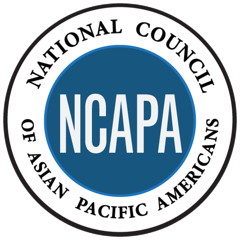Members
NCAPA coalition members work together on various policy issues such as Civil & Human Rights, Education, Health, Housing & Economic Justice, and Immigration. Each of these policy issues has a committee which meets on a regular basis focusing on the key issues of the moment to ensure that the AA & NHPI voice is heard and at the table regarding these matters.
The coalition members are as follows:
Additional affiliate members include:
History
The 1990s saw significant growth in the number and size of Asian-Pacific American (APA) organizations. Nevertheless, many of these organizations spoke for only a segment of the broader community. [3] [4] The push to create an organization gained additional impetus after the 1996 United States campaign finance controversy, in which Asian-Pacific Americans played a significant role. [5] At the July 1996 Organization of Chinese Americans convention in Chicago, Illinois, the leaders of several APA organizations agreed that there was a need for an advocacy coalition which would bring together APA organizations on the local, state, regional and national levels. [3] [4] Former U.S. Representative Norman Mineta assisted the group in convening a series of meetings to discuss the new organization's mission and functions. [3]
NCAPA was formally constituted in 1997. [4] Daphne Kwok of the Organization of Chinese Americans was elected the organization's first chairperson. [3]
NCAPA has been primarily active in politics. In 2000, the group strongly criticized Senator John McCain for using the "gooks" to describe his North Vietnamese prison guards. [6] Four years later, NCAPA took a more proactive role by issuing a first-of-its-kind political platform addressing APA issues, and asking presidential candidates to adopt the platform as their own. [7]
In 2007, after the Virginia Tech massacre, NCAPA worked to counteract discrimination against Asian-Pacific Americans and negative images of APAs in the national media. [2]
On May 8, 2013, members of the coalition met with President Obama and senior staff to discuss topics of immigration, health care, and civil rights. Much of the conversation centered on the comprehensive immigration reform starting to make its way through Congress. In particular, the AAPI leaders zeroed on family reunification measures that are critical to immigrant communities. [8] Participants included Asian American leaders from APALA, APIAHF, CNHA, NCAPACD, OCA, AAPCHO, NCAPA, SAALT, APAICS, AAJC, JACL, SEARAC, NAPAWF, and NAKASEC.
This page is based on this
Wikipedia article Text is available under the
CC BY-SA 4.0 license; additional terms may apply.
Images, videos and audio are available under their respective licenses.

